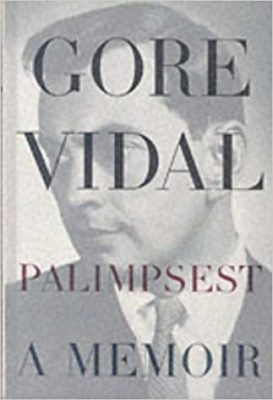
What does it take to write a book, especially a memoir?
I read a couple books on how to write a memoir, and I took Susie Baxter’s course on writing a memoir; but I have no experience on writing anyone else’s memoir. That would seem to be a strange form of biography. (How can you recollect what someone else recollects?) It takes . . . amour propre.
Paradox one: the more you search for the meaning of amour propre, the less clear it becomes. I was getting an inkling of this, and then I came across a 35-page article, “Explanation of Amour Propre,” by the Berkeley philosopher Niko Kolodny. Whoever said “ask a simple question, you’ll get a simple answer” didn’t ask a philosopher. I prefer the 10-word definition in the Cambridge English dictionary:
amour propre: a belief and confidence in your own ability and value.
This corresponds to my understanding of the term as first related to me by my mother, returning from a stay in Spain, describing the Spanish as having amour propre. Rather than quibble over its definition, I will confine myself to applying my meaning of amour propre to writing.
Gore Vidal inadvertently summed up amour propre, for me at least, with three ingredients he considered essential to his style as a writer:
Know who you are.
Know what you want to say.
And don’t give a damn.
Gore Vidal certainly exemplified these characteristics, possibly in the extreme. I think they are particularly pertinent to a memoirist – Gore Vidal wrote two memoirs in two different centuries – I was fascinated by both (Palimpsest 1995 and Point-To-Point Navigation 2006).
If you intend to write about yourself you had better know who you are. Of course, I’m thinking primarily of a memoir. Diaries and journals are clearly not my thing – they seem to point out how boring are most of my days, but then I’m not a prime minister or a movie star – very few names I can drop. An autobiography sounds so pretentious to me, a piece designed to correct all the mistaken notions people have about the author, especially when correcting the statements of his biographer. To the contrary, a memoir is often a serious attempt at self-revelation, rather like a lengthy suicide note.
Paradox two: You don’t truly know who you are until you finish your memoir, thus failing to fulfill Gore Vidal’s first premise. Perhaps that’s why he wrote a second memoir. Nevertheless, you must at least have an inkling of who you are. The purpose of writing a memoir is not ordinarily to find out who you are. That happens almost fortuitously.
A corollary for this paradox is that you don’t really know what you want to say until you’ve said it. For example, it has been my experience that every introduction I’ve written as I began seemed laughable when the project neared completion, requiring the scrapping of the introduction. It is enough, I believe, to think you know what you want to say – a diamond in the rough, so to speak. Perhaps this is best stated in a paradox of its own:
Paradox three: You probably have a message you don’t even know you have. At the very least, you likely have not fully articulated your message. Again, this may be a peculiarity of my writing, but I don’t think so. Often what I thought I wanted to say turned out to be less significant than what I discovered I was saying. For example, just writing this little piece about amour propre drove me to ideas I’d never thought of before.
I happened upon that quote of Gore Vidal, particularly because he personally embodied the quality of amour propre. Notice that he didn’t mention writing skills, intelligence, or imagination. Writing skills can be acquired, often only with great diligence, of course. Everyone has intelligence – at the age of six nearly every human being has mastered an incredibly complex language – we leave chimpanzees in the dust at about two-and-a-half years because of language. We all have imagination, unfortunately crushed frequently by our mentors, but that imagination can be rediscovered when we write. Given the paradoxes I have claimed, the likelihood of any of us measuring up to Gore Vidal’s requirements for a writer is slim indeed.
Paradox four: If you have amour propre, you should never be heard to say you have it. That is a step beyond amour propre, namely hubris, inviting the wrath of the gods. Note that Gore Vidal’s quote, the core of this piece, uses the second person even as he describes his style. Not giving a damn presents the final hurdle, the one that must be jumped if you want never to have writer’s block. Writing risks opening yourself to judgment, criticism, and rejection – pretty scary. Yet, if you aim to please, anxious for widespread approval, want to be marketable, you risk destroying your authenticity. If you know who you are, and you are rotten, you had better maintain your disguises and masks – maybe fiction is your game, but I have serious doubts about that. By the way, editors are good at keeping your amour propre in check. And everything is a draft, a project, a manuscript until someone deems to put it out with your name on it (and that someone could be you).
I am of a mind to think that we are born with amour propre, diminished in the process of socialization. If we take Rousseau’s dictum that “man is born free, and everywhere is in chains” and update it to apply to the mind, you will get my drift – Man is born with amour propre and everywhere he is a wimp. Last year I came across a wonderful quote about amour propre. The quote, was translated from Hungarian into sufficiently simple Spanish that I felt comfortable in translating:
Hay algo peor que la muerte, peor que el sufrimiento… Y es cuando uno pierde el amor proprio.
There is something worse than death, worse than suffering: It is the loss of amour propre. – Sándor Márai
To me this means we have it, but it is easily lost.
I nevertheless like the notion of amour propre and Gore Vidal’s essentials, realizing as an old man that it takes a long time and a lot of reading and writing to know who you are, what you want to say, and to adopt American physicist Richard Feynman’s attitude and the title of his book of memoir-like tales: What do you care what other people think?
Does this mean I have amour propre? No, of course not. I’m just an egotist.

Joan H. Carter
Thank you for a blog to remember. You are so right about what you learn from laying your ideas out in written form. And the courage you need to let others read and critique what you said. One thing I’d dispute: you suggest rotten people disguise their true selves, but nowadays we don’t discriminate. Even rotten people can have fans.
Cynthia Bertelsen
Ransford, I love this article. Thanks!
Ransford C Pyle
No, Cindy, thank you for picking amour propre for my blog. I knew “what I wanted to say” but I ended up saying more than I knew. But ain’t that the spell that writing casts on those of us crazy about writing?
Ransford C Pyle
Joan, good point about rotten people. i guess I’m thinking like the 20th century guy I am. Nowadays many parade their nasty selves openly and gain a following of other nasties. But others, think “politicians,” who hide their true feelings.
Wendy Thornton
Great article. It seems difficult to write memoir without lapsing into hubris, but the popularity of the genre suggests that most people manage to avoid being seen as self-obsessed. Writing a memoir really forces you to evaluate your sometimes (often) absolutely stupid decisions. It would be nice if people learned from them 🙂
Patsy Murray
Wonderful essay on one phrase! I loved it and smiled a lot. I agree with you. The diminishment of our original amour proper is a result of socialization. But then, the opposite effect is also true, depending on whom we socialize with (never end a sentence with a preposition.)
Joan, I think most rotten people cannot truly hide their rottenness. Their fans only want to believe there is no rot.
Ransford C Pyle
Wendy, thanks for your comment. I would like to add that memoir writing requires not only that you look at yourself almost as psychoanalysis (At least true in my case), but your must face difficult questions concerning whether you life and thoughts are worth sharing, and, scariest of all: Is my writing worth reading? (or am I making a fool of myself?)
Ransford C Pyle
Patsy, Glad you smiled. Amour propre without a sense of humor (esp. about oneself) is just arrogance. I was lucky to have associated with so many folks with self-esteem (victimhood not allowed). My brother committed suicide at 20 – he lost his amour propre and I am finishing a book about us (“Beyond Suicide”) and I finally came to this conclusion, among others.
Wally Saunders
Long live egotism if it produces delightful pieces like this. How encouraging it is to be reminded that even (perhaps especially) seasoned professors can make the drop out of their head into their heart. Many thanks.
Ransford C Pyle
Thanks, Wally, I keep telling myself I have something to say. Fortunately it doesn’t usually take much convincing because of my egotism. My retirement from teaching, and living largely alone, has giving me the freedom to write every day and every day I write what I want to write. Glad I lived so long.
Pattie Macurdy
Dr. Pyle, you are still a teacher. You write, I read and learn. Amour Propre is a good topic for discussion. It seems to be a desirable thing unless you get too much of it. Occasional self-doubt is probably a healthy sign we are human.
Ransford C Pyle
Pattie, as you know, there’s more where this came from. Polishing my piece on Amor Fati (Nietzsche). I’m just an inveterate omphaloskeptic.